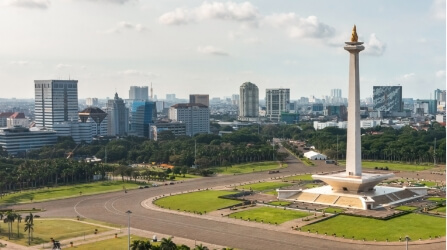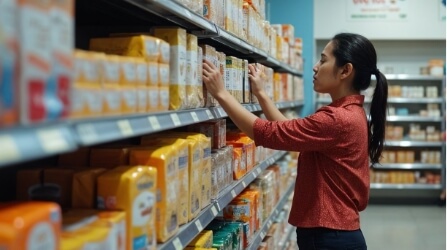Step 1
Understand Your Market Entry Options to Indonesia
You must first determine the most suitable legal structure for your market entry into Indonesia. This choice impacts your taxes, regulatory compliance, operational control, and liability.
Popular Market Entry Structures in Indonesia
Foreign-Owned Limited Liability Company (PT PMA)
A PT PMA is the most common entity for foreign businesses. It allows you full operational control, the ability to import goods, employ local and foreign staff, and remit profits.
Representative Office (KPPA)
If you are testing the market or looking for initial brand visibility, a Representative Office is ideal for market research and establishing brand awareness but cannot generate direct revenue.
Joint Venture (JV)
JVs are partnerships with local Indonesian businesses, offering you insights, resources, and quicker market entry but at the cost of shared control.
Step 2
Ensure Regulatory Compliance
Indonesia’s regulatory framework requires meticulous attention.
Missing or misunderstanding any step can cause delays or legal issues.
Obtain your Business Identification Number (NIB)
The essential first step for all market entrants.
Secure sector-specific licenses and approvals
You must comply fully with local industry regulations.
Trademark and IP registration
Essential for protecting your brand, designs, and technology.
Step 3
Plan Your Financial & Tax Structure
Efficient tax planning is crucial to successful market set-up.
You must:
Establish robust financial structures compliant with Indonesia’s taxation system.
Understand local corporate tax obligations, VAT rules, and employee taxation responsibilities.
Align your accounting practices with local standards from day one.
Step 4
Set Up Physical Operations
To effectively operate in Indonesia, you must:
Select an appropriate physical or virtual office location to fulfill regulatory requirements
Prepare for equipment importation or local procurement.
Ensure reliable IT infrastructure for seamless operational continuity.
Step 5
Recruit Local Talent
You must attract and retain local talent who understand Indonesian consumer preferences, language nuances, and business culture. You’ll need to:
Establish clear employment agreements complying with Indonesian labour law.
Develop competitive compensation packages and an attractive work culture.
Provide regular training to align local employees with global business standards.
Step 6
Leverage Market Readiness Assistance (MRA) Grant
You must use Singapore’s Market Readiness Assistance (MRA) Grant to financially support your market entry activities. Through this MRA grant, SMEs can receive up to S$100,000 per new market, covering up to 50% of eligible set-up costs such as:
Market Entry legal fees
Regulatory compliance consultations
Market surveys and feasibility studies
Intellectual property filings and registrations
Strategic Market Setup for Indonesia
Building a strong foundation in Indonesia isn’t just about ticking boxes it’s about navigating a complex, dynamic environment that changes fast. As a Singapore company, you have to develop a clear, informed market setup strategy that addresses:

Regulation changes and compliance risk
Indonesian laws and regulations, from licensing to investment rules, are frequently updated. To stay ahead, you have to stay informed and agile. Proper set-up ensures you maintain compliance when the rules shift, reducing legal and operational risk for your business.

Currency volatility and financial planning
The Indonesian rupiah can fluctuate significantly, impacting import costs and profitability. You have to build a financial buffer and price strategy that factors in currency risk for smoother cash flow.

Halal requirements across industries
With up to 90% of Indonesians identifying as Muslim, halal certification isn’t an option it’s a necessity in food, beverage, pharmaceuticals, and hospitality. You have to understand and comply with the mandatory halal labelling laws to avoid penalties.

Logistics across a sprawling archipelago
Indonesia spans over 17,000 islands so you have to build your supply chain and logistics around local infrastructure, port access and inter-island customs rules. Poor planning here can easily erode margins and delay delivery times.

Localised customer habits
Consumers in different regions may respond differently to your product urban Jakarta may have different needs than rural Sumatra. You have to localise pricing, packaging, and distribution to fit diverse consumer segments.
Key Benefits of Partnering with an Expert
While managing market entry yourself is possible, partnering with a market set-up consultant offers several advantages:

Rapid Implementation
Accelerate your timeline through experienced guidance and networks.

Local Expertise
Consultants offer critical local insights that minimise regulatory pitfalls and optimise operational decisions.

Cost Efficiency
Expert knowledge helps streamline processes, ensuring MRA Grant compliance and maximising grant utilisation.
MRA Grant Coverage
- Market Entry Support
- FTA & Trade Compliance Consultancy
CiptaMata Group is your dedicated Singapore–Indonesia business advisory. Drawing on over a decade of in-market experience, we provide end-to-end support, from initial research to post-launch optimisation.

Co-funding up to
S$30,000
Why Use the MRA Grant for Your Expansion?

Expanding into a new market can be costly and risky. The market readiness assistance scheme offsets these risks by reducing upfront costs and increasing your chances of successful internationalisation. Whether you’re testing a market through trade shows or looking to incorporate overseas, the MRA grant has your back.
MRA Grant Application:
What You Need to Know
To apply for the MRA grant, you’ll need to submit an application via the Business Grants Portal. Before doing so, ensure you meet all eligibility requirements and prepare the necessary documents, such as project proposals, quotations, and cost breakdowns.
MRA Grant Eligibility Criteria
To qualify, your business must meet the following criteria, ensuring the MRA grant supports truly growth-ready SMEs entering new international markets.
Singapore Registered Business
Your company must be registered and operating in Singapore.
Local Shareholding
At least 30% of your company must be held by Singapore citizens or Permanent Residents, either directly or indirectly.
New Market
The grant applies only to new overseas markets where your company has not exceeded S$100,000 in sales over the last three years.
SME Size
Your group’s annual turnover must not exceed S$100 million or group employment must be below 200 employees.

Start Your Market Set-Up Journey Today!
Seize the first-mover advantage in Indonesia’s rapidly evolving economy. Maximise your Market Readiness Assistance (MRA) Grant benefits, streamline your set-up process, and ensure complete compliance.
It’s time to transform your market potential into operational success—let’s get you established in Indonesia, quickly, confidently, and cost-effectively.







